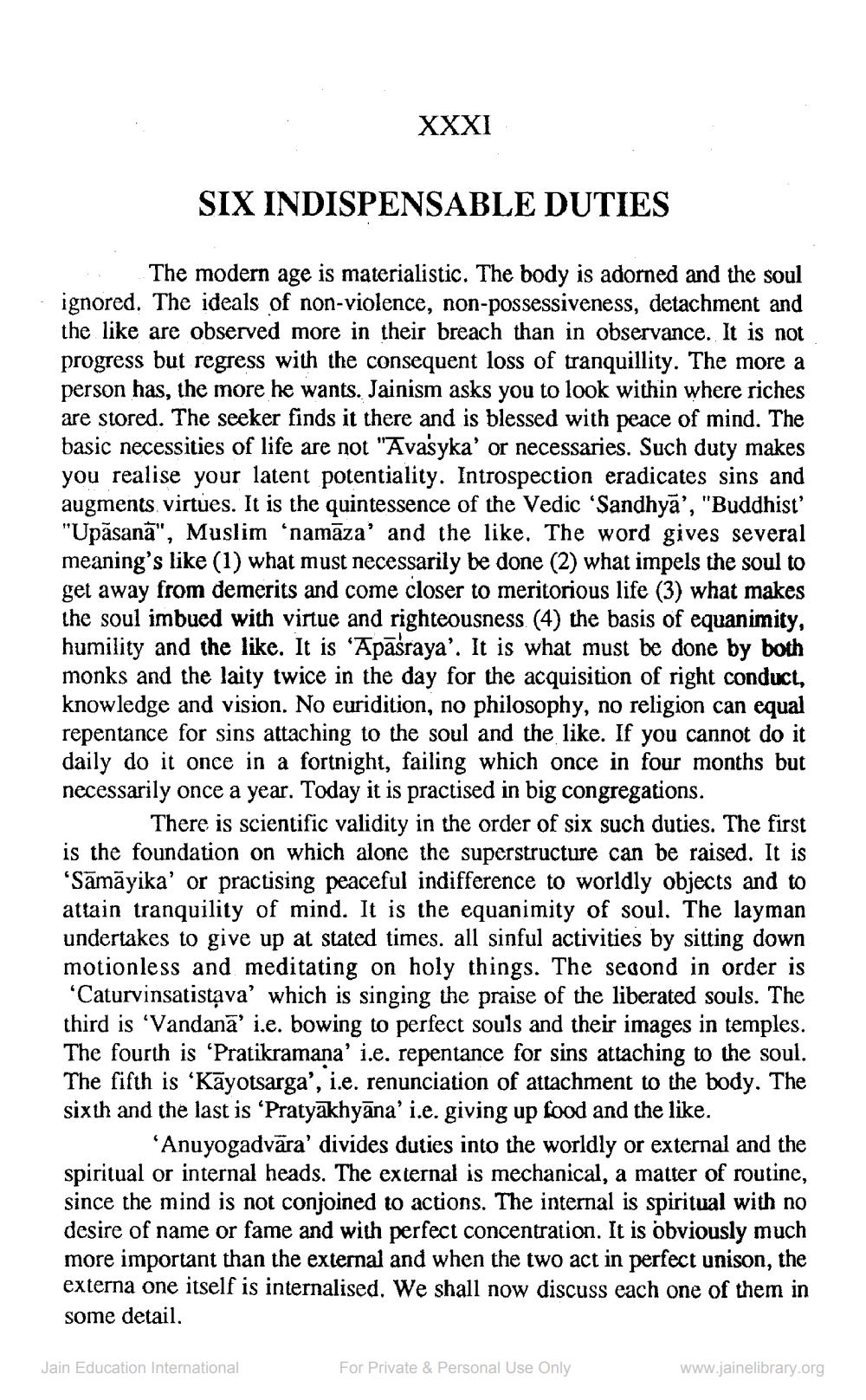________________
XXXI
SIX INDISPENSABLE DUTIES
The modern age is materialistic. The body is adorned and the soul ignored. The ideals of non-violence, non-possessiveness, detachment and the like are observed more in their breach than in observance. It is not progress but regress with the consequent loss of tranquillity. The more a person has, the more he wants. Jainism asks you to look within where riches are stored. The seeker finds it there and is blessed with peace of mind. The basic necessities of life are not "Avasyka' or necessaries. Such duty makes you realise your latent potentiality. Introspection eradicates sins and augments virtues. It is the quintessence of the Vedic 'Sandhyā', "Buddhist' "Upāsanā", Muslim ‘namāza' and the like. The word gives several meaning's like (1) what must necessarily be done (2) what impels the soul to get away from demerits and come closer to meritorious life (3) what makes the soul imbued with virtue and righteousness (4) the basis of equanimity, humility and the like. It is 'Apasraya'. It is what must be done by both monks and the laity twice in the day for the acquisition of right conduct, knowledge and vision. No euridition, no philosophy, no religion can equal repentance for sins attaching to the soul and the like. If you cannot do it daily do it once in a fortnight, failing which once in four months but necessarily once a year. Today it is practised in big congregations.
There is scientific validity in the order of six such duties. The first is the foundation on which alone the superstructure can be raised. It is Sāmāyika' or practising peaceful indifference to worldly objects and to attain tranquility of mind. It is the equanimity of soul. The layman undertakes to give up at stated times. all sinful activities by sitting down motionless and meditating on holy things. The second in order is
'Caturvinsatistava' which is singing the praise of the liberated souls. The third is 'Vandana' i.e. bowing to perfect souls and their images in temples. The fourth is ‘Pratikramana' i.e. repentance for sins attaching to the soul. The fifth is ‘Kāyotsarga', i.e. renunciation of attachment to the body. The sixth and the last is ‘Pratyakhyāna' i.e. giving up food and the like.
'Anuyogadvāra' divides duties into the worldly or external and the spiritual or internal heads. The external is mechanical, a matter of routine, since the mind is not conjoined to actions. The internal is spiritual with no desire of name or fame and with perfect concentration. It is obviously much more important than the external and when the two act in perfect unison, the externa one itself is internalised. We shall now discuss each one of them in some detail.
Jain Education International
For Private & Personal Use Only
www.jainelibrary.org




